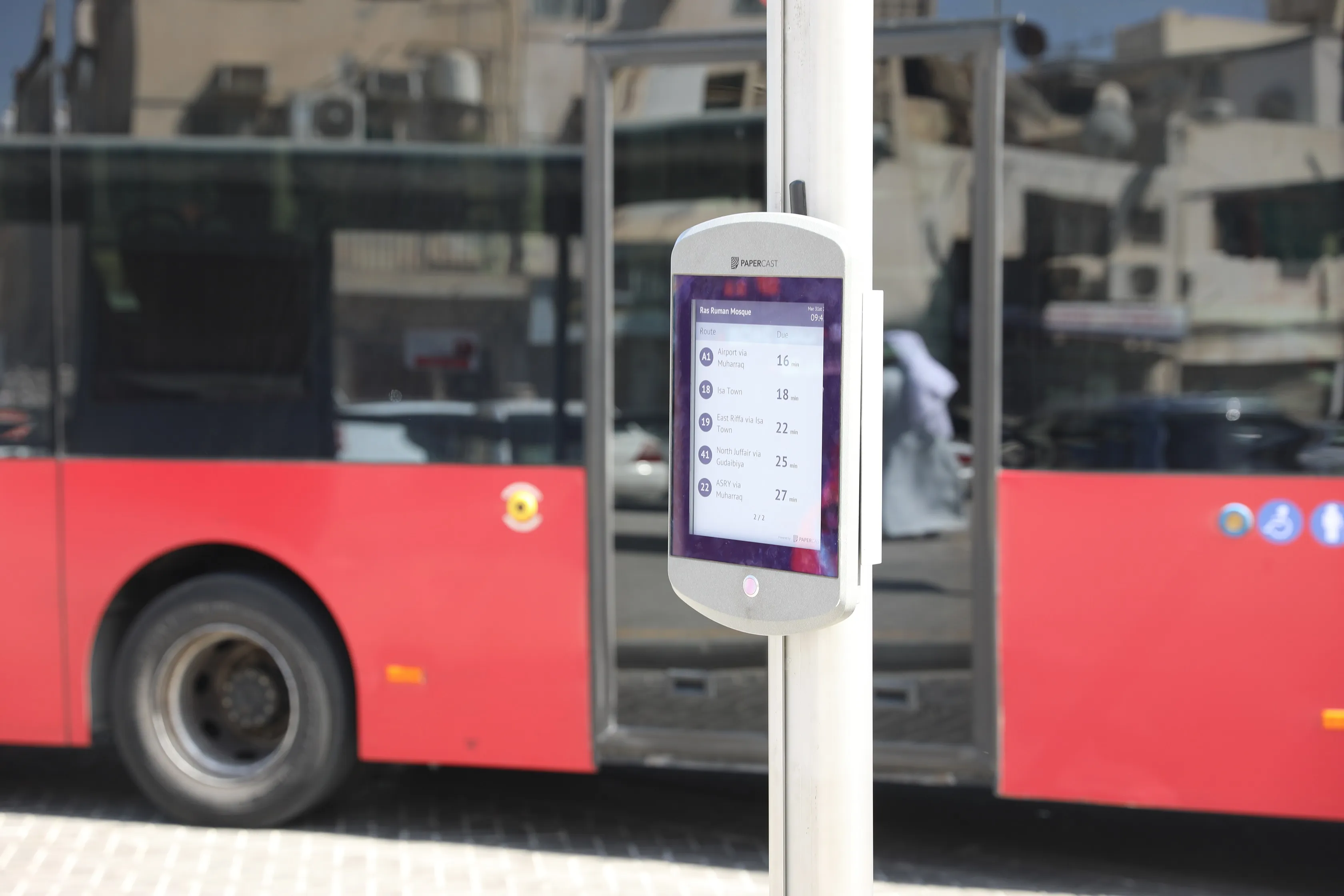Users can locate the different lines and stops around their current location or any others that are manually entered from the main window of the app after enabling the geolocation permission of the terminal. The 'how to get there' feature reveals the shortest route between two locations and is planned through Google maps.
Additionally, the application shows information related to the different lines, routes and bus stops that make up the topology of the urban transport in the city and provides real time information of the estimated times of passage by the stop. This temporary information will also be shown in the 93 information panels that GMV will provide as part of the scope of the project; the panel locations are currently being defined by the city of Toledo itself.
Based on the frequency of use, the user can select favourites or more stops to facilitate future searches.
The rest of the additional information related to the city is available and updated through the website of the city of Toledo, which can be launched from the main window of the app.
GMV develops app to inform travellers of bus status in real time
GMV has developed the Toledo Bus app to provide users with real time information of the City’s urban transport network. It is part of a plan carried out by Unauto in collaboration with GMV to modernize the public bus fleet. Users can locate the different lines and stops around their current location or any others that are manually entered from the main window of the app after enabling the geolocation permission of the terminal. The 'how to get there' feature reveals the shortest route between two locations
November 22, 2017
Read time: 2 mins








